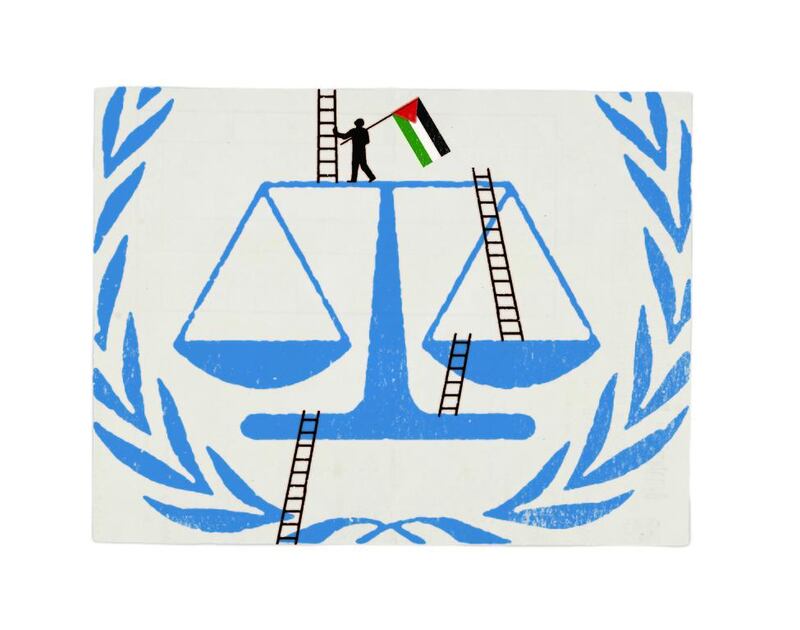weekend eye
In November 2012 the streets of Ramallah were alive with the rarefied buzz of promise and salvation. The United Nations General Assembly voted to elevate the status of Palestine to that of a non-member observer after a resolution was cast by the Palestinian Authority.
For a people with little left to lose, the event provided emotional relief in the face of grinding Israeli domination.
It was, however, a last-ditch political effort by an increasingly unpopular president. After years of inaction, Palestinian Authority president Mahmoud Abbas had seemingly found a creative way to exert concrete international pressure on Israel while appeasing restless constituents upset with his tenure at home. In the end, it was just an act of desperation.
Within months of the vote, the political theatre of the UN statehood bid was revealed for what it was; an sclerotic campaign for the hearts and minds of Palestinians. Evidence for this sad reality came swiftly as the Palestinian Authority leadership failed to exercise the most salient tool that came with statehood – membership to the International Criminal Court (ICC).
The result was exactly what Mr Abbas intended to avoid throughout the UN statehood fiasco: a systemic crisis of leadership in the West Bank and Gaza.
Sentiments expressed to me by diverse sectors of Palestinian society at the time hinged on disbelief that Mr Abbas would not immediately pursue Israel in the ICC. What is the point of statehood if not to exercise legitimate international tools to end Israeli occupation?
Even if these prosaic moves wouldn’t achieve concrete results or criminal convictions, the psychological effects of pursuing Israel at the ICC would exact a certain moral victory over Israeli war crimes and legitimate non-violent civil efforts to isolate Israel in international business, academic and cultural forums.
True to form, the Palestinian Authority ignored these popular opinions, preferring to pursue the path of endless US-brokered negotiations that have kept the two-state solution on life support for at least the last 10 years. For much of 2013 the status quo, in which Israel has invested incredible resources to maintain, seemed firmly entrenched. But it wasn’t.
From the war in Gaza to the increasingly bloody fight for Jerusalem, the status quo that Israel has manicured for the past several years unhinged in 2014, along with any semblance of a peace process that can solve the conflict.
Make no mistake, ICC membership was a last-ditch effort by an embattled and unpopular politician desperately attempting to hold on to power in an increasingly out-of-control situation.
By failing to obtain a UN security council resolution calling for a Palestinian state, which would have essentially repeated the short-term political reprieve that the UN General Assembly vote accomplished in 2012, Mr Abbas was left with no other choice but to pursue ICC membership in December. That the European Union recently removed Hamas from its terror list compounds the crisis further for the Palestinian Authority leadership as it battles to maintain legitimacy.
For years the Palestinian Authority leadership has been the only actor, aside from maybe the United States, fighting for the two-state solution. Through continued settlement activity and intransigence, Israel long ago eschewed the two-state paradigm in favour of a dangerous status quo designed to allow Israel near total control over Palestinians. By moving forward with the ICC membership bid, Mr Abbas is essentially ending what have become meaningless Israeli-Palestinian peace talks.
As expected, Israel and the United States are fatuously slapping the Palestinian Authority on the wrist for its decisive behaviour at the UN by withholding its tax revenue. This has happened before and it will surely happen again. Far from demonstrating that Israel intends to dismantle the Palestinian Authority, the move highlights the degree to which Israel controls it.
For years Palestinian intellectuals and activists have argued that the Palestinian Authority will need to be fundamentally reformed if the Palestinians stand a chance of having a unified effort against Israeli occupation, armed or unarmed.
Mr Abbas is not going to call for elections anytime soon, despite the fact that his presidential term ended years ago. With his reticence to reform the Palestinian political apparatus from within and the death of the Oslo peace process, the Palestinian Authority has little left to lose and a lot to gain from the ICC membership bid.
The Israeli press has been awash in reports that the Palestinians will have little success at the ICC. While this may be the case, the psychological effects are having a clear impact on Israel and its benefactor, the United States.
Given the unequal military equation of the conflict, fighting a battle for the hearts and minds of the international community is exactly the strategy of non-aligned Palestinian activists such as those in the boycott movement.
Mr Abbas’s new strategy at the ICC appears to borrow a page from the boycott playbook by forcing an exaggerated Israeli backlash against the Palestinians that will ultimately cast Israel as an international pariah and thus dry up internal support for the occupation. It is a long game inspired by African National Congress efforts against the apartheid regime in South Africa.
To be sure, the conflict has entered a new and more honest stage. For its part, Israel is making fewer overtures towards peace. The next government will likely be the most right-wing in the country’s history. By borrowing from the non-violent strategies of the boycott movement, Mr Abbas is lending legitimacy to some of his harshest critics.
The ICC bid cannot be taken at face value because turning to international law has never helped the Palestinians in their quest for justice and statehood. Rather, this bid is the tacit recognition that negotiations with Israel will not win Palestinians freedom from occupation; only nonviolent isolation of Israel on the world stage will achieve this goal.
Joseph Dana is a regular contributor to The National
On Twitter: @ibnezra





